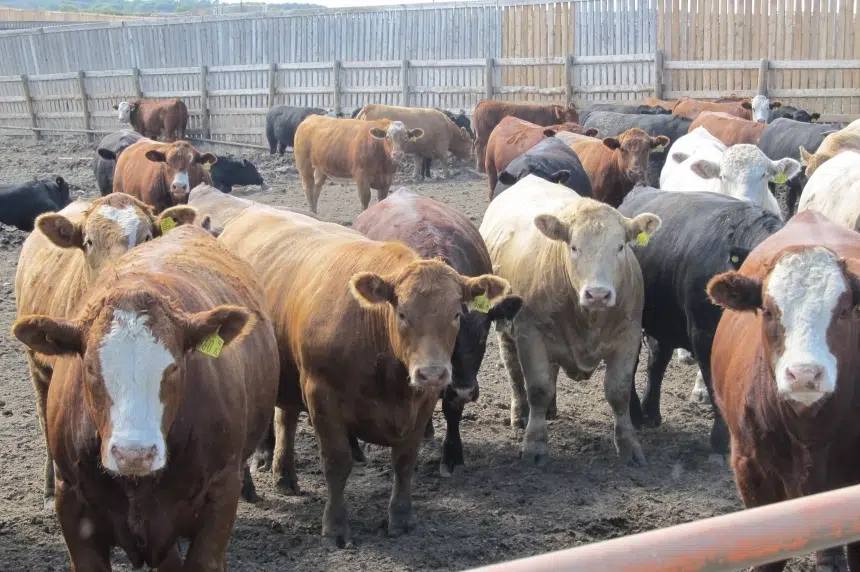The cattle industry in Saskatchewan is facing a number of issues, including low profits, drought conditions and a shortage of veterinarians.
The situation is bad enough that one stakeholder said the existence of Saskatchewan’s beef industry is being threatened.
That’s why the Saskatchewan Association of Rural Municipalities (SARM) has partnered with the Saskatchewan Cattlemen’s Association and the Saskatchewan Stock Growers Association to call for immediate support and long-term solutions to help the struggling industry.
“We want to see producers grow and succeed and to do this, they need support with better risk management programs, more rural vet clinics, irrigation, and consideration for a joint effort from our provincial and federal governments in cost-sharing premiums,” the groups said in a joint statement Wednesday.
According to SARM president Ray Orb, a combination of drought conditions and issues with feed have left many cattle producers struggling, and it’s making it tough for new ranchers to get established.
“Alongside the feed concern, young ranchers are struggling to get into the industry, or find sustainability with fluctuating prices and little to no risk management support,” Orb said in a statement.
Adding to those concerns is a shortage of veterinarians, which Orb said will be felt acutely by many during the upcoming calving season.
“Let’s start offering opportunities for youth entering the (veterinary) field to open clinics in our province,” Orb said. “The lack of veterinarians is a chronic concern for producers who are being left to travel great distances to find animal aid, or enduring additional costs for mobile vet appointments.”
Orb suggested financial incentives could be put in place to help attract vets to rural Saskatchewan, where they’re needed most by ranchers.
Jeffrey Yorga, a vice-president with the Saskatchewan Stock Growers Association, said the issues have become so bad that the industry itself is under threat.
“The last five years of drought has exposed some major cracks in the cattle business. The lack of business risk management tools, the lack of pricing transparency, and the rapid exit of aging producers threaten the very existence of the beef industry in Saskatchewan,” Yorga said in a statement.
“Economics has sped the decline in cattle numbers. As well, the relative economic success in other sectors has turned the land from grass to annual crops, ensuring that the cows won’t return.”
SARM said it and other industry groups will continue to call for support, and the topic will be top of mind at its upcoming convention in Saskatoon, set to begin March 14.











